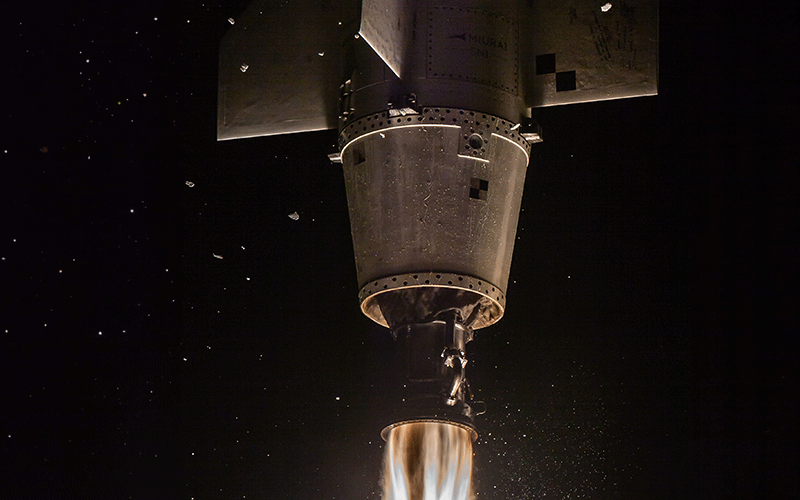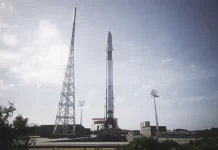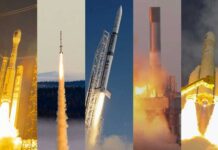
Spanish launch startup PLD Space has successfully launched the maiden flight of its suborbital Miura 1 rocket. The launch was conducted at 00:19 UTC on 7 October from the El Arenosillo Test Centre in Huelva, Spain.
The flight lasted for a total of 306 seconds, with the vehicle reaching a maximum altitude of 46 kilometres. After reaching its maximum altitude, the rocket began its journey back to Earth, landing under parachutes in the Atlantic Ocean. The company had intended to recover the vehicle within hours of its landing, but PLD Space has yet to confirm that this operation has been completed successfully.
The vehicle carried an experiment for the German Centre for Applied Technology and Microgravity, which aimed to “study microgravity conditions.”
According to PLD Space CEO Raúl Torres, the vehicle performed as expected without any significant deviation or degradation of trajectory. Additionally, he explained that the company achieved a number of key milestones during “reentry.”
PLD Space had initially planned to reach an altitude of 80 kilometres on its first flight. However, according to Torres, this was changed for “safety reasons.” The change included a lower trajectory and a reduction of the total burn time of the rocket’s TEPREL-B engine from 122 seconds to 103 seconds.
The mission has been labeled by many, including PLD Space, as “Europe’s first fully private rocket launch.” However, this is not true. In fact, in June this year, Polish space tech company SpaceForest launched its suborbital Perun rocket from the Polish Air Force Central Training Ground in Ustka. In October 2022, T-Minus from the Netherlands launched a pair of its Kingfisher rockets over a two-week launch campaign, with both reaching an altitude of approximately 185 kilometres. PLD Space is the latest company to add its name to the list.
In addition to being the first product that PLD Space will offer to customers, the vehicle will also act as a technology demonstrator for the company’s larger Miura 5 vehicle, which will be capable of deploying payloads into orbit. According to the company, Miura 1 will help the company validate as much as 70% of the technology that will be used aboard Miura 5.




